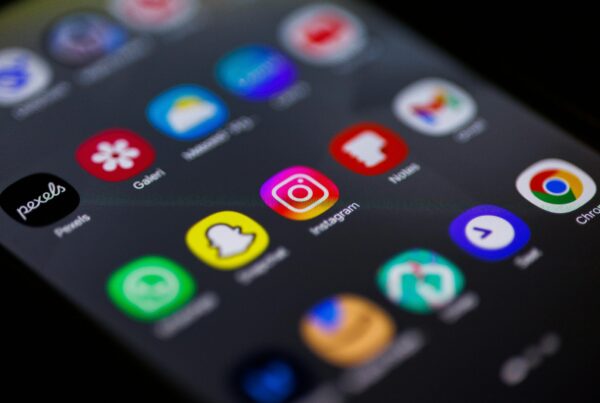Everyday products and means of communication, whether visual, audio, or video, are becoming more and more reliant on high-speed, 24/7 internet connections. To keep up with the ever-growing demand, the 5th Generation of wireless networking technology has been introduced; more commonly known as 5G.
Why do we need 5G for connectivity and data?
According to the regulator Ofcom, we will be using 13 times more data in 2025 than we are today. Today there are 7 billion internet-connected devices worldwide, by 2025, there will be an estimated 21 billion. Many of these new devices will be things that power and monitor our homes, city infrastructure, transport and more; this network is what is commonly known as Internet of Things (IoT). It is touted as one of the next big digital revolutions and because of how important it is to maintain connectivity to critical devices controlling our safety and security, improvement will be required in the network response times or latency.
A significant increase of speed for data transfer
Compared to 4G, 5G promises to increase data transfer from 1Gbps to 20Gbps. As mentioned in our last Meet the experts article, with this enhancement, users will have access to data and information in much shorter response time, an important enhancement especially for emergency services, military and critical response teams. However it’s not all good news. Devices running 5G connectivity will experience a huge battery drain, resulting in the need for better battery technology.
This increase in speed also comes with other trade-offs. Speed increases and lower latency have been achieved by changes in the 5G radio; one of the changes has the use of higher frequency bands. However these higher frequency bands are only good over relatively short distances and are easily blocked by buildings. Great for factory automation, but in cities, operators will require a lot more 5G radios to cover a given area and it doesn’t currently address rural areas at all.
While 5G will increase the use of IoT devices, the faster speeds of 5G connectivity is likely to bring a greater risk for cyber-attacks, providing an opportunity for hackers to target more devices through weak links between devices connected to the internet. As the number of IoT devices increases, it heightens security challenges; devices connected to 5G networks pose the risk of hackers downloading and extracting information, including personal data, at a much faster speed than ever before.
The Future applications of 5G technology
There are many ways 5G technology will be used in the future, utilizing its fast speed data transfers. For example, in the public domain, video games as consoles are projected to become obsolete as users rely on cloud technology to access games and software. Due to a reduced waiting time and ease of access, and with every remote action made smother and way more precise thanks to the 5G technology, video games and the video consoles that we know of today will disappear, , potentially changing the whole economic structure of the industry.
Outside of the public domain, the possibility for 5G technology is endless. From autonomous cars to smart cities, remote medicine and surgeries or Industry 4.0, all industries could see huge changes as 5G technology is introduced.
The use of 5G technology in the Defence industry
In the Defence industry, 5G will provide a better answer to military needs; when looking for enhanced orchestration, hybrid networks, interoperability, cybersecurity and resilience, 5G has the potential to offer all of this, moving from one system per need, to one system for all your needs. High speed data transfers will result in reduced waiting time, superior situational awareness during your most critical missions and improved connectivity between those on the field and at HQ. Remote control will be improved with a lower waiting time, drones control will become more precise and the native connectivity will be improved for soldier.
BestWeb –
For further enquiries on any of our expertise or services, whether it is for website design & development, mobile application development, or digital media marketing, please feel free to contact or WhatsApp +6010-2200 660, email [email protected] or visit https://bestweb.com.my Thank you.



